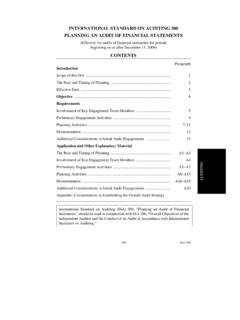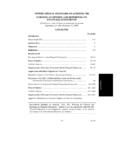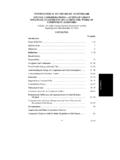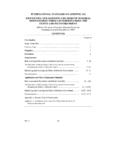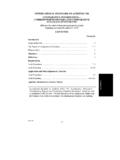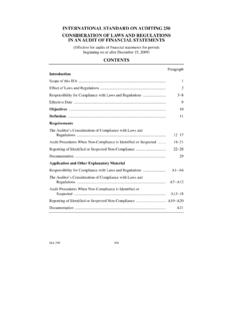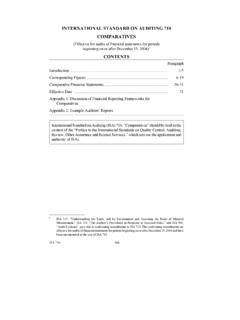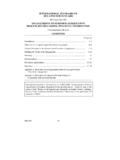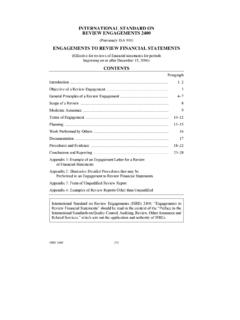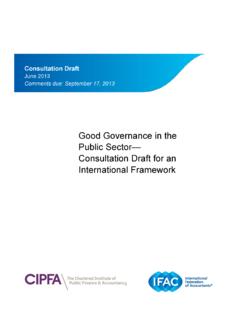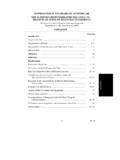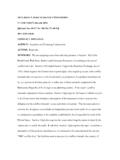Transcription of INTERNATIONAL STANDARD ON AUDITING 200 …
1 ISA 200 71 AUDITING INTERNATIONAL STANDARD ON AUDITING 200 OVERALL OBJECTIVES OF THE INDEPENDENT AUDITOR AND THE CONDUCT OF AN AUDIT IN ACCORDANCE WITH INTERNATIONAL standards ON AUDITING (Effective for audits of financial statements for periods beginning on or after December 15, 2009) CONTENTS Paragraph Introduction Scope of this ISA .. 1 2 An Audit of Financial Statements .. 3 9 Effective Date .. 10 Overall Objectives of the Auditor .. 11 12 Definitions .. 13 Requirements Ethical Requirements Relating to an Audit of Financial Statements.
2 14 Professional Skepticism .. 15 Professional Judgment .. 16 Sufficient Appropriate Audit Evidence and Audit Risk .. 17 Conduct of an Audit in Accordance with ISAs .. 18 24 Application and Other Explanatory Material An Audit of Financial Statements .. A1 A13 Ethical Requirements Relating to an Audit of Financial Statements .. A14 A17 Professional Skepticism .. A18 A22 Professional Judgment .. A23 A27 Sufficient Appropriate Audit Evidence and Audit Risk .. A28 A52 Conduct of an Audit in Accordance with ISAs.
3 A53 A76 OVERALL OBJECTIVES OF THE INDEPENDENT AUDITOR AND THE CONDUCT OF AN AUDIT IN ACCORDANCE WITH INTERNATIONAL standards ON AUDITING ISA 200 72 Introduction Scope of this ISA 1. This INTERNATIONAL STANDARD on AUDITING (ISA) deals with the independent auditor s overall responsibilities when conducting an audit of financial statements in accordance with ISAs. Specifically, it sets out the overall objectives of the independent auditor, and explains the nature and scope of an audit designed to enable the independent auditor to meet those objectives.
4 It also explains the scope, authority and structure of the ISAs, and includes requirements establishing the general responsibilities of the independent auditor applicable in all audits, including the obligation to comply with the ISAs. The independent auditor is referred to as the auditor hereafter. 2. ISAs are written in the context of an audit of financial statements by an auditor. They are to be adapted as necessary in the circumstances when applied to audits of other historical financial information.
5 ISAs do not address the responsibilities of the auditor that may exist in legislation, regulation or otherwise in connection with, for example, the offering of securities to the public. Such responsibilities may differ from those established in the ISAs. Accordingly, while the auditor may find aspects of the ISAs helpful in such circumstances, it is the responsibility of the auditor to ensure compliance with all relevant legal, regulatory or professional obligations. An Audit of Financial Statements 3.
6 The purpose of an audit is to enhance the degree of confidence of intended users in the financial statements. This is achieved by the expression of an opinion by the auditor on whether the financial statements are prepared, in all material respects, in accordance with an applicable financial reporting framework. In the case of most general purpose frameworks, that opinion is on whether the financial statements are presented fairly, in all material respects, or give a true and fair view in accordance with the framework.
7 An audit conducted in accordance with ISAs and relevant ethical requirements enables the auditor to form that opinion. (Ref: Para. A1) 4. The financial statements subject to audit are those of the entity, prepared by management of the entity with oversight from those charged with governance. ISAs do not impose responsibilities on management or those charged with governance and do not override laws and regulations that govern their responsibilities. However, an audit in accordance with ISAs is conducted on the premise that management and, where appropriate, those charged with governance have acknowledged certain responsibilities that are fundamental to the conduct of the audit.
8 The audit of the financial statements does not relieve management or those charged with governance of their responsibilities. (Ref: Para. A2 A11) OVERALL OBJECTIVES OF THE INDEPENDENT AUDITOR AND THE CONDUCT OF AN AUDIT IN ACCORDANCE WITH INTERNATIONAL standards ON AUDITING ISA 200 73 AUDITING 5. As the basis for the auditor s opinion, ISAs require the auditor to obtain reasonable assurance about whether the financial statements as a whole are free from material misstatement, whether due to fraud or error. Reasonable assurance is a high level of assurance.
9 It is obtained when the auditor has obtained sufficient appropriate audit evidence to reduce audit risk (that is, the risk that the auditor expresses an inappropriate opinion when the financial statements are materially misstated) to an acceptably low level. However, reasonable assurance is not an absolute level of assurance, because there are inherent limitations of an audit which result in most of the audit evidence on which the auditor draws conclusions and bases the auditor s opinion being persuasive rather than conclusive.
10 (Ref: Para. A28 A52) 6. The concept of materiality is applied by the auditor both in planning and performing the audit, and in evaluating the effect of identified misstatements on the audit and of uncorrected misstatements, if any, on the financial In general, misstatements, including omissions, are considered to be material if, individually or in the aggregate, they could reasonably be expected to influence the economic decisions of users taken on the basis of the financial statements. Judgments about materiality are made in the light of surrounding circumstances, and are affected by the auditor s perception of the financial information needs of users of the financial statements, and by the size or nature of a misstatement, or a combination of both.
